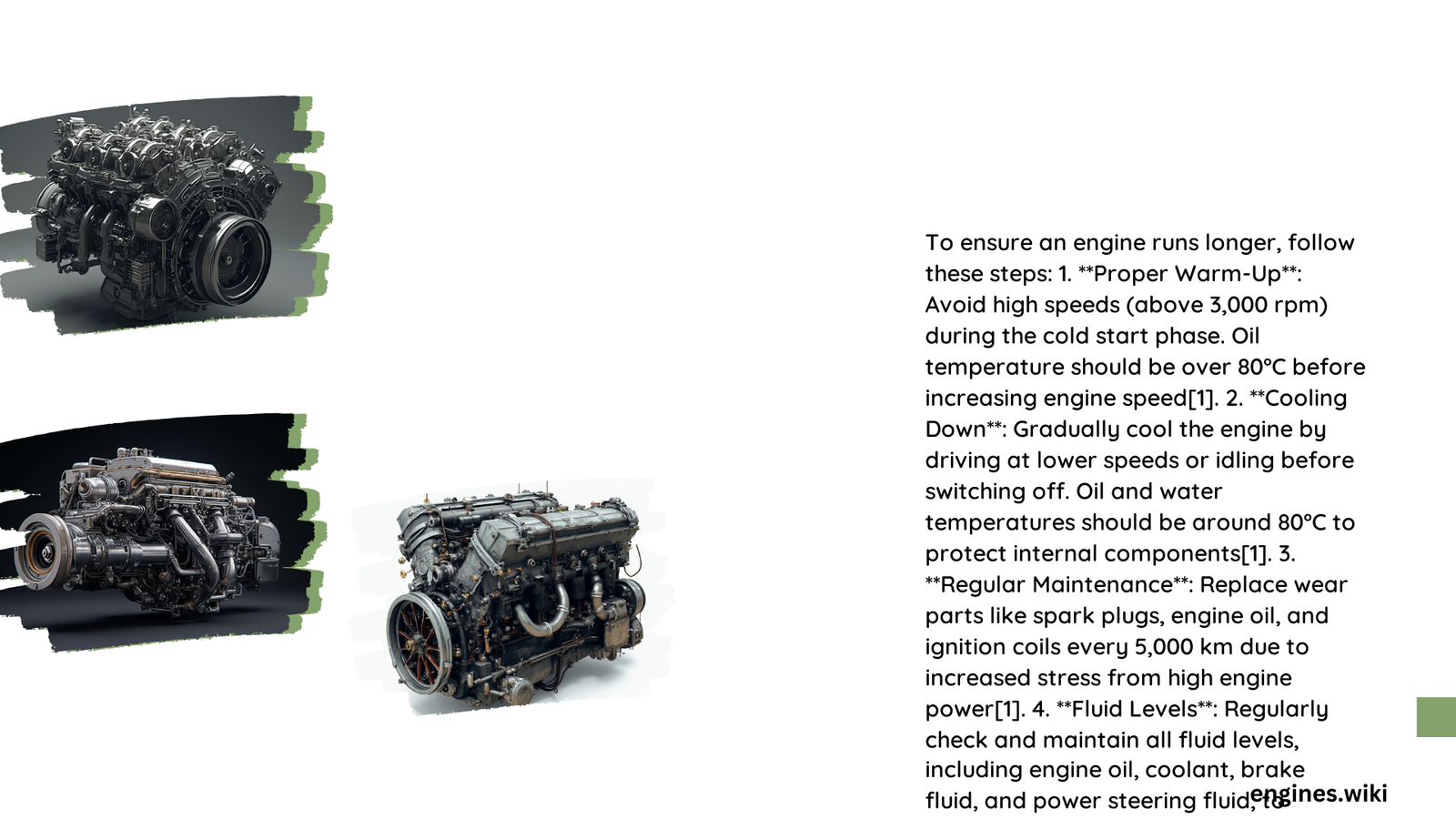Modern vehicle engines are complex mechanical systems that require strategic care and precision maintenance to extend their operational lifespan. Ensuring an engine runs for longer involves a multifaceted approach combining advanced technological interventions, proactive maintenance practices, and understanding the intricate dynamics of mechanical performance. Vehicle owners and automotive enthusiasts can significantly enhance engine durability through systematic modifications, regular servicing, and intelligent operational strategies.
Why Do Engines Fail Prematurely?
Engines typically experience premature failure due to several critical factors:
| Factor | Impact | Prevention Strategy |
|---|---|---|
| Inadequate Lubrication | 40% of engine failures | Regular oil changes, high-quality synthetic lubricants |
| Overheating | 25% of mechanical breakdowns | Consistent coolant maintenance, temperature monitoring |
| Contamination | 20% performance reduction | Advanced filtration systems, periodic cleaning |
How Can You Extend Engine Life?

Optimize Lubrication Systems
Proper lubrication represents the cornerstone of engine longevity. Key strategies include:
- Use high-quality synthetic oils with superior thermal stability
- Maintain recommended oil change intervals
- Monitor oil viscosity and quality regularly
- Install advanced oil filtration systems
Implement Advanced Cooling Techniques
Effective heat management prevents mechanical stress and premature wear:
- Use premium coolant with enhanced thermal properties
- Check radiator efficiency periodically
- Ensure proper coolant circulation
- Monitor engine temperature consistently
Performance Tuning for Longevity
Contrary to popular belief, performance tuning can enhance engine durability when done professionally:
- ECU remapping for optimized fuel efficiency
- Precision camshaft upgrades
- Advanced air intake systems
- Turbocharging with intelligent boost management
What Maintenance Practices Maximize Engine Performance?
Regular Diagnostic Checks
- Use advanced diagnostic tools
- Perform comprehensive system scans
- Track performance metrics
- Identify potential issues before they escalate
Fuel System Management
Maintaining fuel system integrity involves:
- Using high-quality fuel
- Regular fuel injector cleaning
- Installing advanced fuel filters
- Preventing contamination
Technical Recommendations for Extended Engine Life
Precision Component Selection
- Choose OEM or high-grade aftermarket components
- Prioritize compatibility and quality
- Invest in precision-engineered replacement parts
Driving Behavior Optimization
Intelligent driving techniques significantly impact engine longevity:
- Avoid aggressive acceleration
- Maintain consistent speeds
- Minimize cold start stress
- Practice smooth gear transitions
Technological Interventions
Modern engines benefit from:
– Advanced sensor technologies
– Real-time performance monitoring
– Predictive maintenance algorithms
– Machine learning-based diagnostics
Cost-Benefit Analysis
| Maintenance Activity | Average Cost | Potential Savings |
|---|---|---|
| Regular Oil Changes | $50-$100 | Up to $2,000 in prevented repairs |
| Coolant Maintenance | $100-$200 | Prevents $1,500 in potential engine damage |
| Performance Tuning | $500-$1,500 | Extended engine life by 30-50% |
Conclusion
Extending engine life requires a holistic approach combining technological understanding, proactive maintenance, and intelligent operational strategies. By implementing these comprehensive techniques, vehicle owners can significantly enhance engine performance and longevity.
